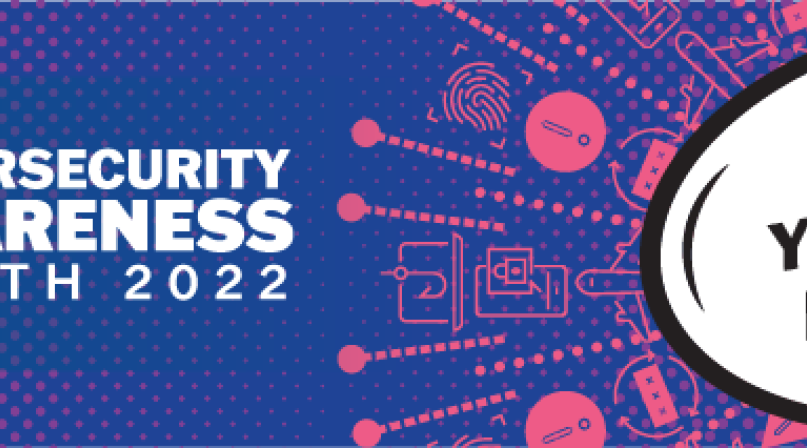"See Yourself in Cyber" this October

Key Takeaways
It’s that time of year again when we recognize and focus on cybersecurity. In its 19th year, recognized by the US president and Congress, the Cybersecurity and Infrastructure Security Agency (CISA) and the National Cybersecurity Alliance (NCA) lead a collaborative effort between government and industry to raise cybersecurity awareness nationally and internationally during the month of October.
Do more
Become a Cybersecurity Awareness Month Champion. Visit CISA’s campaign partner, National Cybersecurity Alliance, to sign up for their campaign updates, newsletter, and more!
Each year focuses on a different theme. This year’s theme is “See Yourself in Cyber.” Cyber protection isn’t just the responsibility of the technology professionals, it is a responsibility and a personal duty of everyone. On an individual level, there are basic steps one should take to protect yourself online, while you travel, and when you conduct various transactions. Retailers, vendors, manufacturers, and other suppliers are responsible for safeguarding the products they build, deliver, and make available to us. And, of course, those in the IT (Information Technology) profession have the responsibility to implement the tools and best practices to protect critical data and the systems in which it resides.
While CISA and NCA are focusing this year’s education on the critical action steps listed below, I will take it another step further. Each week (through County News Now), I will explain what that action step is, why you should care and what you can do to improve the protection of yourself and the critical data you touch every day. Throughout October, I will be sharing best practices, resources, and recommendations to help all of us fulfill those responsibilities.
- Enabling Multi-Factor Authentication (MFA) - You need more than a password to protect your online accounts, and enabling MFA makes you significantly less likely to get hacked.
- Using strong passwords - Use long, unique, and randomly generated passwords.
- Recognizing and reporting phishing - If a link looks a little off, think before you click.
- Updating your software - Don’t delay; act promptly if you see a software updated notification.
In the meantime, let me leave you with valuable resources that will help guide you in this cyber journey:
Education for protecting yourself on a personal level:
- Resources + Guides - National Cybersecurity Alliance (staysafeonline.org) is a collection of digital resources that provide education in cyber awareness, both in your work and personal life
- Reporting Cybercrime - National Cybersecurity Alliance (staysafeonline.org)
- How to Tell If Your Computer Has a Virus and What to Do About It - National Cybersecurity Alliance (staysafeonline.org)
- Social Media - National Cybersecurity Alliance (staysafeonline.org)
- Phishing - National Cybersecurity Alliance (staysafeonline.org)
- Online Shopping - National Cybersecurity Alliance (staysafeonline.org)
Education and tools for the technology professional:
- Cyber Hygiene Services
- CISA Shields Up
- Cyber Resource Hub
- Communications & Cyber Resiliency Toolkit
- Cybersecurity Training & Exercises
- Cyber Awareness Month



